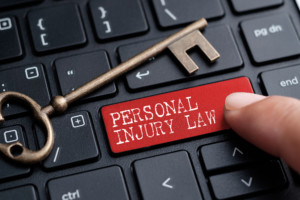 If you have been injured in a car accident, a slip and fall, or some other incident due to someone else’s reckless or careless behavior, you should be thinking about filing a personal injury case in Illinois’s civil courts.
If you have been injured in a car accident, a slip and fall, or some other incident due to someone else’s reckless or careless behavior, you should be thinking about filing a personal injury case in Illinois’s civil courts.
However, it is essential that you know, understand, and comply with the statute of limitations in such a case. The statute of limitations is essentially a deadline before which a personal injury claim has to be filed.
Time Limit to File a Personal Injury Case
Illinois law has set a deadline of two years on filing a personal injury case in the state’s civil court. This two-year time limit usually starts from the date on which an accident takes place.
In certain cases, the two-year time limit might start from the date on which you found out about your injury, rather than the date on which you were actually injured.
Why Is There a Deadline to File a Personal Injury Case?
One reason why there’s a deadline to file a personal injury case is that as time moves on, it gets more and more challenging, or even impossible, to prove an injury in court. This is because there’s a high risk of the evidence getting lost or corrupted. Moreover, the people involved may start also start forgetting important details related to the incident.
What Happens if You Miss the Deadline?
If more than two years have passed since the time you got injured, but you still try to file a personal injury claim, the defendant will certainly take up this point in court and file a motion to dismiss. If the court dismisses your case, you will lose the entitlement to receive damages for your injuries, regardless of how serious they might be.
If you have any questions regarding Illinois’s statute of limitations and how it applies to your personal injury case, particularly if the deadline is near or has passed, you need to consult with experienced attorneys at The Law Offices of Robert T. Edens. We have more than twenty years of experience in safeguarding the rights of personal injury victims in McHenry & Lake Counties and are always ready to fight for your right to receive compensation.

You can visit any of our offices located in Barrington, Woodstock, Grayslake, Waukegan, and Antioch or simply dial (847) 395-2200 to get in touch with our team.

 In any litigation case, expert and witness depositions are critical to the discovery phase. They have a high influence on the final outcome of wrongful death, workers’ compensation, and personal injury cases. It is essential that you work with a
In any litigation case, expert and witness depositions are critical to the discovery phase. They have a high influence on the final outcome of wrongful death, workers’ compensation, and personal injury cases. It is essential that you work with a  If you are going through a personal injury case, at some point, you will have to obtain copies of your medical records to present as evidence to support your claim. It is one of the determining factors for the amount of compensation you may receive to recover damages. Insurance companies heavily rely on medical records to get an accurate picture of the personal injury. Insurance adjusters use these records to examine the extent and nature of your injury and the costs you incurred in receiving medical treatment. Without proper, authentic medical documentation that can account for your injuries and medical treatment, it will be very difficult for your attorney to negotiate a settlement.
If you are going through a personal injury case, at some point, you will have to obtain copies of your medical records to present as evidence to support your claim. It is one of the determining factors for the amount of compensation you may receive to recover damages. Insurance companies heavily rely on medical records to get an accurate picture of the personal injury. Insurance adjusters use these records to examine the extent and nature of your injury and the costs you incurred in receiving medical treatment. Without proper, authentic medical documentation that can account for your injuries and medical treatment, it will be very difficult for your attorney to negotiate a settlement.